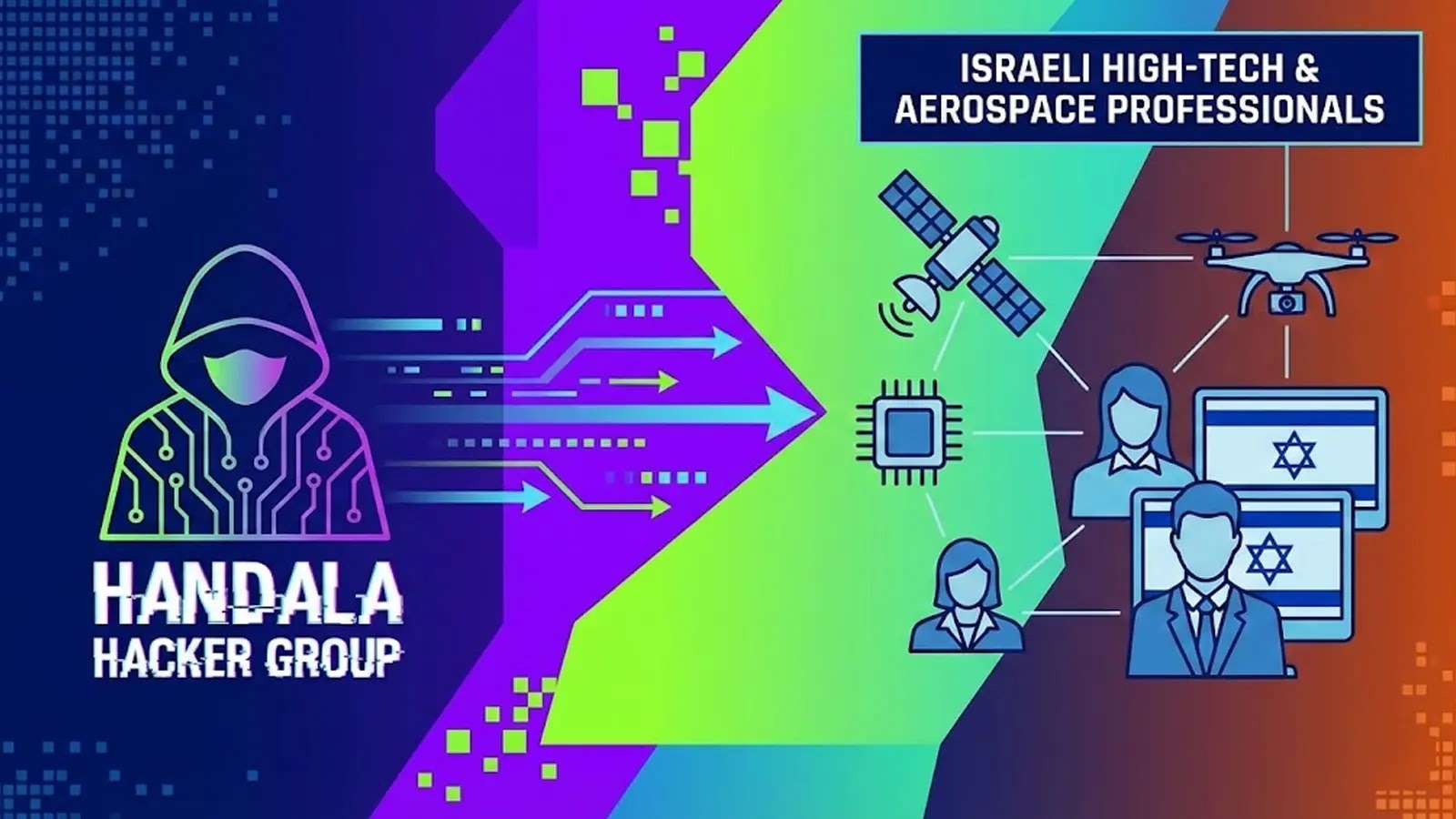
Handala Hacker Group Attacking Israeli High-Tech and Aerospace Professionals
A disturbing new front has opened in the realm of geopolitically motivated cyber warfare. The Handala hacker group has escalated its activities, launching a highly targeted campaign specifically against Israeli high-tech and aerospace professionals. This aggressive move, detailed by cybersecurity news outlets, marks a significant departure from typical cyber operations, focusing on personal intimidation and professional disruption rather than purely technical breaches.
Handala’s Targeted Campaign: Beyond System Intrusions
Unlike many state-sponsored or ideologically driven hacktivist groups that primarily seek to disrupt infrastructure or exfiltrate sensitive data, Handala has adopted a more insidious approach. Their recent actions involve the publication of lists containing names of individuals working in critical Israeli sectors, specifically high-tech and aerospace. These lists are accompanied by inflammatory and false descriptions, branding these professionals as “criminals.” This method aims to personal humiliation and professional damage, extending the battlefield beyond digital networks into the personal and professional lives of individuals.
The campaign represents a concerning trend where cyber operations are increasingly being used to directly target and harass individuals, leveraging personal information to exert pressure and sow discord. Such tactics can have severe implications for the targeted professionals, impacting their reputation, safety, and psychological well-being.
Escalation in Geopolitical Cyber Operations
The Handala group’s actions are indicative of an evolving landscape in cyber warfare, where the lines between state-sponsored attacks, hacktivism, and individual harassment are increasingly blurred. Targeting high-tech and aerospace professionals, who are often privy to sensitive research, development, and strategic information, can serve multiple objectives for an adversarial group. These objectives could include:
- Intelligence Gathering: While not a direct system breach, identifying key personnel can aid in future spear-phishing attempts or social engineering schemes tailored to extract information.
- Disruption and Demoralization: By creating an environment of fear and mistrust, Handala aims to disrupt the work environment and potentially demoralize professionals in sectors crucial to national security and economic stability.
- Psychological Warfare: The public shaming and false accusations are intended to exert psychological pressure, potentially coercing individuals or creating internal divisions within these critical sectors.
- Recruitment or Subversion Attempts: The hostile descriptions, while accusatory, could also serve as a strange form of psychological manipulation, testing reactions or even attempting to “turn” individuals under pressure, though this is a more speculative outcome.
This shift underscores the need for comprehensive security strategies that extend beyond technical defenses to include robust personal security protocols and employee awareness training.
Risk Factors for Israeli High-Tech and Aerospace Personnel
Individuals working within Israeli high-tech and aerospace sectors now face heightened risks. These risks include:
- Reputational Damage: False accusations can harm professional standing and future career prospects.
- Personal Safety Concerns: Public exposure and hostile labeling can lead to real-world threats or harassment.
- Increased Phishing and Social Engineering Attempts: Once identified, these professionals become prime targets for highly sophisticated and personalized cyberattacks.
- Psychological Stress: The constant threat of exposure and harassment can lead to significant psychological distress.
It’s crucial for organizations and individuals in these critical sectors to acknowledge and prepare for these evolving threats. For example, understanding how groups like Handala operate provides invaluable insight for defensive strategies and incident response planning.
Remediation Actions and Protective Measures
Addressing this type of targeted campaign requires a multi-faceted approach, encompassing both organizational and individual actions.
For Organizations:
- Enhanced Employee Training: Conduct regular, in-depth training on social engineering tactics, spear-phishing, and the importance of personal online security hygiene. This should go beyond generic advice and simulate real-world scenarios.
- Threat Intelligence Integration: Subscribe to and actively monitor threat intelligence feeds specifically tracking groups like Handala and their evolving TTPs (Tactics, Techniques, and Procedures).
- Robust HR and Legal Support: Establish clear protocols for supporting employees who are targeted, including legal counsel and psychological support.
- Social Media Monitoring: Implement tools and processes to monitor for mentions of employees or the organization in hostile online environments.
- Data Minimization Strategies: Review public-facing information about employees and the organization to ensure that unnecessary personal details are not exposed.
For Individuals:
- Review Online Footprint: Scrutinize personal social media profiles and professional networking sites (e.g., LinkedIn) for any information that could be leveraged by adversaries. Adjust privacy settings to limit public visibility.
- Strengthen Digital Security: Implement strong, unique passwords for all accounts, enable multi-factor authentication (MFA) everywhere possible, and be extremely cautious of unsolicited communications.
- Report Suspicious Activity: Immediately report any unusual emails, messages, or online activity to your organization’s security team.
- Professional Discretion: Exercise extreme caution when discussing work-related topics, even with trusted colleagues, in unsecured online environments.
The Evolving Threat Landscape
The Handala group’s campaign against Israeli high-tech and aerospace professionals serves as a stark reminder that cyber threats are constantly evolving. Adversaries are becoming more sophisticated, moving beyond traditional network breaches to directly target individuals with methods designed to intimidate, disrupt, and demoralize. The focus on human elements over solely technical vulnerabilities highlights the increasing importance of comprehensive security strategies that prioritize human awareness and resilience. Organizations and individuals must remain vigilant and proactively adapt their security postures to counter these emerging and deeply personal threats.





